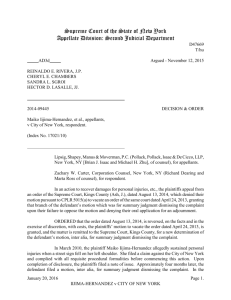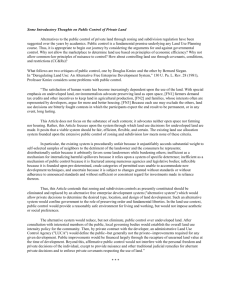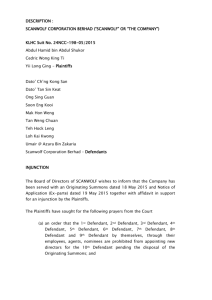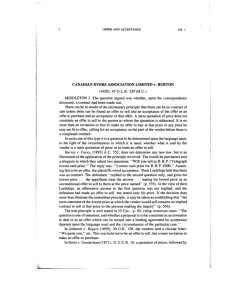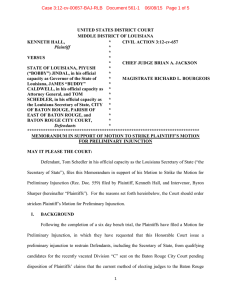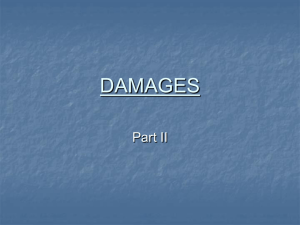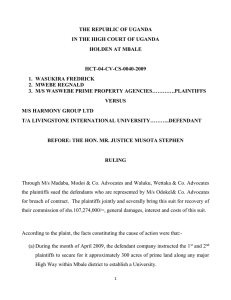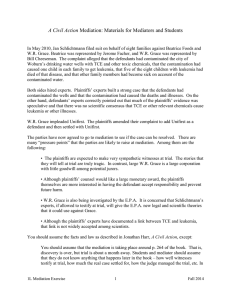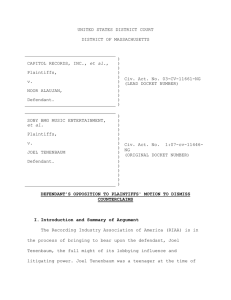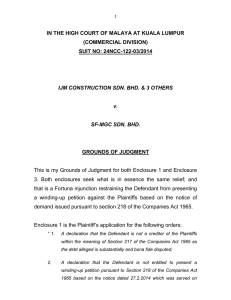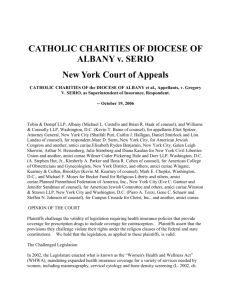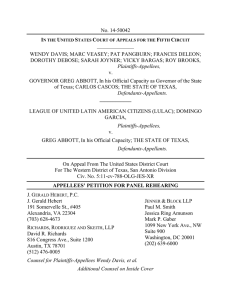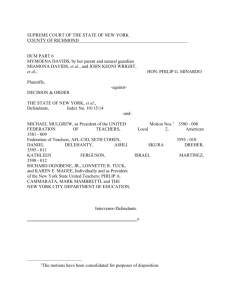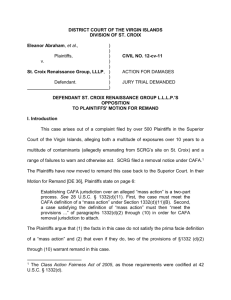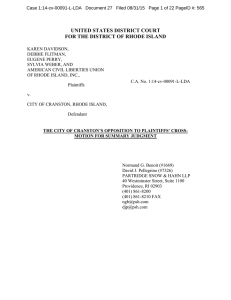View Case Brief - CAROLINE CURRIER
advertisement
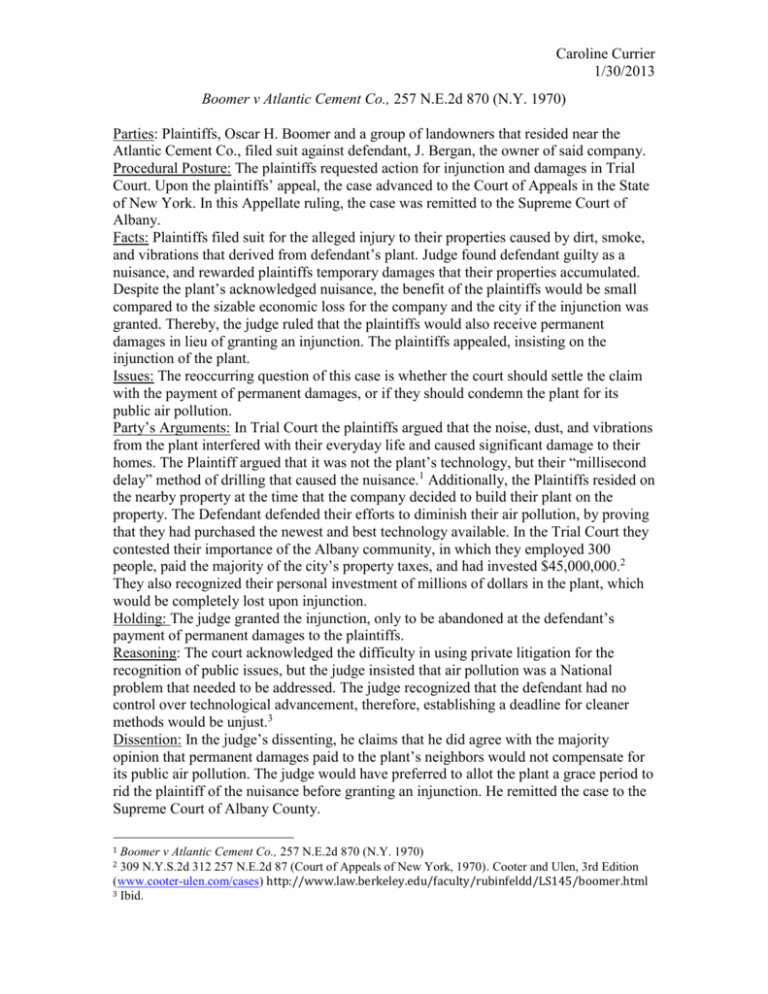
Caroline Currier 1/30/2013 Boomer v Atlantic Cement Co., 257 N.E.2d 870 (N.Y. 1970) Parties: Plaintiffs, Oscar H. Boomer and a group of landowners that resided near the Atlantic Cement Co., filed suit against defendant, J. Bergan, the owner of said company. Procedural Posture: The plaintiffs requested action for injunction and damages in Trial Court. Upon the plaintiffs’ appeal, the case advanced to the Court of Appeals in the State of New York. In this Appellate ruling, the case was remitted to the Supreme Court of Albany. Facts: Plaintiffs filed suit for the alleged injury to their properties caused by dirt, smoke, and vibrations that derived from defendant’s plant. Judge found defendant guilty as a nuisance, and rewarded plaintiffs temporary damages that their properties accumulated. Despite the plant’s acknowledged nuisance, the benefit of the plaintiffs would be small compared to the sizable economic loss for the company and the city if the injunction was granted. Thereby, the judge ruled that the plaintiffs would also receive permanent damages in lieu of granting an injunction. The plaintiffs appealed, insisting on the injunction of the plant. Issues: The reoccurring question of this case is whether the court should settle the claim with the payment of permanent damages, or if they should condemn the plant for its public air pollution. Party’s Arguments: In Trial Court the plaintiffs argued that the noise, dust, and vibrations from the plant interfered with their everyday life and caused significant damage to their homes. The Plaintiff argued that it was not the plant’s technology, but their “millisecond delay” method of drilling that caused the nuisance.1 Additionally, the Plaintiffs resided on the nearby property at the time that the company decided to build their plant on the property. The Defendant defended their efforts to diminish their air pollution, by proving that they had purchased the newest and best technology available. In the Trial Court they contested their importance of the Albany community, in which they employed 300 people, paid the majority of the city’s property taxes, and had invested $45,000,000.2 They also recognized their personal investment of millions of dollars in the plant, which would be completely lost upon injunction. Holding: The judge granted the injunction, only to be abandoned at the defendant’s payment of permanent damages to the plaintiffs. Reasoning: The court acknowledged the difficulty in using private litigation for the recognition of public issues, but the judge insisted that air pollution was a National problem that needed to be addressed. The judge recognized that the defendant had no control over technological advancement, therefore, establishing a deadline for cleaner methods would be unjust.3 Dissention: In the judge’s dissenting, he claims that he did agree with the majority opinion that permanent damages paid to the plant’s neighbors would not compensate for its public air pollution. The judge would have preferred to allot the plant a grace period to rid the plaintiff of the nuisance before granting an injunction. He remitted the case to the Supreme Court of Albany County. 1 Boomer v Atlantic Cement Co., 257 N.E.2d 870 (N.Y. 1970) 309 N.Y.S.2d 312 257 N.E.2d 87 (Court of Appeals of New York, 1970). Cooter and Ulen, 3rd Edition (www.cooter-ulen.com/cases) http://www.law.berkeley.edu/faculty/rubinfeldd/LS145/boomer.html 3 Ibid. 2

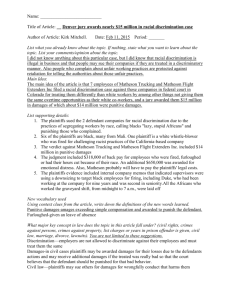
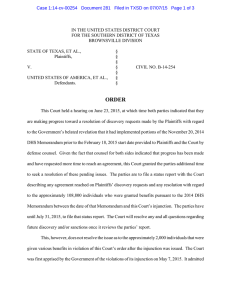
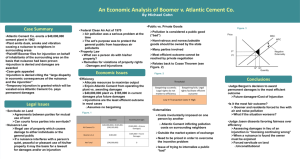
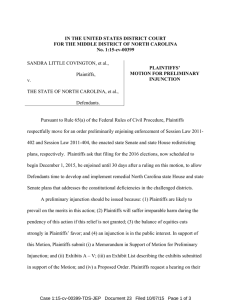
![[Click and Enter Attorney Name], State Bar No - E](http://s3.studylib.net/store/data/007177564_1-4d9407aff5e1ecb2a5922cd955484ee2-300x300.png)
